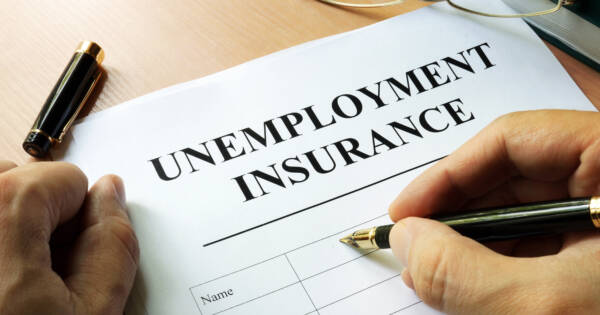It’s no secret that we live in a dangerous world. Driving our cars, doing our jobs, buying our homes, and even getting sick all expose us to different types and amounts of risk. The solution most developed societies have come up with for counteracting risk is insurance.
In the above situations and others, the likelihood of risks materializing has been meticulously studied and codified into actuarial tables. Insurers use them to calculate your unique risks and the costs of insuring you against them. And it’s important to realize that insurance is not, as Ned Flanders famously said on The Simpsons, a form of “gambling”. Rather, it is a baseline necessity of responsible living. Most of us should have several types of insurance to address the risks in our lives.
10. Auto Insurance
Most licensed drivers in the United States are required to be covered by automobile insurance. Whether drivers purchase their own policies or are simply attached to someone else’s — as in the case of a teenager covered by their parent’s insurance — this requirement is in place because of how frequently automobile accidents, theft, and vandalism occur.
From inclement weather to shoddy tires or engines to sheer carelessness on the part of one or more drivers, any number of things contribute to accidents alone. Furthermore, such things happen so often that it would be an abject nightmare for the involved parties to sort everything out amongst themselves. A far more streamlined solution is requiring that every driver be insured and that these types of car problems get dealt with by the insurers in a uniform fashion.
9. Life Insurance
Various personal finance experts have pointed out that life insurance is perhaps incorrectly named. It is not insurance on your life per se, but rather insurance on your income.
If you have dependents, such as a spouse or children or even your elderly parents, who rely on your income, life insurance is a necessity. What a life insurance policy will do is guarantee to these parties a set amount of income for some stated period of time in the event that you die.
There are two main forms of life insurance:
- Term Life Insurance: Plain vanilla insurance. You pay a set premium for a set cash benefit paid out under very specific circumstances.
- Whole Life Insurance: Turns life insurance into a savings and investment vehicle. Unfortunately, it has a very spotty track record of success.
8. Homeowners Insurance or Renters Insurance
Whether you own or rent your living space, insurance on the structure and your belongings is essential.
Homeowners insurance is a somewhat vague label encompassing various types of specific risks such as flood, fire, and earthquake — although they may not all be included — along with vandalism and theft. To the extent that your home and the belongings you store in it are more valuable to you than the cost of a homeowners insurance premium, you should have such a policy. Ditto for renters, who can and often should purchase renters insurance on the belongings stored in their apartments. At a minimum, you can expect homeowners insurance and renters insurance policies to protect you against harm done to your living space by others.
Clearly, where you live also influences how urgent the need for these types of policies are. Those living in known high crime areas, for instance, would be downright foolish not to have a good insurance policy on their homes.
7. Fire Insurance
As noted above, fire risks are not always insured by homeowners policies. It may be that after a thorough review of your homeowners insurance, that an insurer treats fire as a separate and distinct risk all its own. While it is not unheard of to go without fire insurance, many have opted to go this route and wound up regretting it when tragedy ensued.
In some areas of the country, fire insurance is more essential than others. For instance, the chronically dry and hot regions of the southwest. Those living in remote or rural areas are also presumably at higher risk. This is since firefighters have a more difficult time dispatching help to such places.
6. Flood Insurance
Flood insurance is sometimes not included under the umbrella of homeowners insurance. If you already have a homeowner’s policy, it is important to review it and determine whether your coverage excludes floods. Unless flood damage is explicitly mentioned, the insurance company will not pay a dime for damages suffered in connection with flooding in your home.
The potential damages from floods run the gamut from mild annoyances, like vacuuming out the basement and replacing some moldy carpet, to outright disasters, like your home being torn off its foundation. Some areas of the country, such as coastal regions, are officially recognized as high-flood areas where residents are required to buy flood insurance as a condition of buying property.
Even in areas that don’t require flood insurance, you should conduct your own analysis and decide whether it’d be smart to buy a policy anyway.
5. Disability Insurance
There was a time in the United States when most jobs were physically demanding to one extent or another. Debilitating injuries at construction sites and in factories were common, so disability insurance was an absolute necessity to provide for your lost income in the event that you suffered one.
While many of today’s jobs are less challenging from a physical standpoint, disability insurance is still a must for much of the working population. Even office jobs, for instance, can expose you to risks like carpal tunnel syndrome.
What a disability insurance policy will do is guarantee you a set percentage of your lost income for a stated period if you suffer an injury in the course of doing your job. Be sure, however, that any disability policy you buy covers your occupation or else the policy will not pay benefits unless you are unable to work in any occupation at all.
4. Health Insurance
Contrary to general assumptions, health insurance was not always a must-have in America. As recently as 50 years ago, it was quite common to be uninsured for all but the most catastrophic medical expenses. But times have changed. As such, some form of health insurance is in many respects a necessity.
As the costs of everything from doctor visits to prescription drugs has steadily risen, it is increasingly difficult for people to pay most medical expenses out of pocket. The most common solution is getting coverage through your employer. However, there are other ways of becoming insured, including:
- Buying an individual policy;
- Purchasing insurance as part of a group, or;
- Using a Health Savings Account to buy a high-deductible policy.
The older and/or less healthy you are, the more important health insurance is.
3. Liability Insurance
Liability insurance is crucial for anyone operating a business that exposes others to risk. Doctors, for instance, must purchase malpractice insurance to protect against lawsuits stemming from mistakes or wrongdoing in their work. Construction companies buy liability insurance as well, to protect against workplace accidents involving their employees.
The general principle is that if your business entails the possibility of others being harmed, law or rationality obligates you to buy some form of liability insurance. Unfortunately, liability insurance is often quite expensive. For example, doctors frequently cite the prohibitively high cost of malpractice insurance as a reason they go out of business.
2. Title Insurance
Title insurance comes into play during real estate transactions. It exists to guarantee that the title to a given property is valid, marketable title free, and clear of liens, judgments, or encumbrances.
The danger is that a prospective homeowner or real estate investor will pour weeks or months of time into buying a property, only to find out that they do not actually have clear ownership of it when the deal goes through. The resulting legal battles involved in unwittingly buying a property with liens or judgments can be extremely problematic. Title insurance protects prospective buyers or investors from inheriting any such problems with the property they are buying.
1. Earthquake Insurance
The world has seen its fair share of devastating earthquakes in recent years. As such, this has led to greater awareness of the need for earthquake insurance.
Like flood and fire insurance, earthquake insurance is sometimes included in homeowners insurance policies. Unless a homeowner’s policy explicitly provides for earthquake damage, it will not pay out a dime for it.
Just as there are particularly fire-prone and flood-prone areas, there are earthquake-prone areas. California comes to mind as an obvious example, but it is far from the only example.
If you live in such an area, earthquake insurance is typically required as a condition of buying a home. But even if it isn’t, do your own homework and decide whether it might make sense to buy one anyway. Earthquake insurance could mean the difference between getting a fresh start and hopelessly losing everything.








